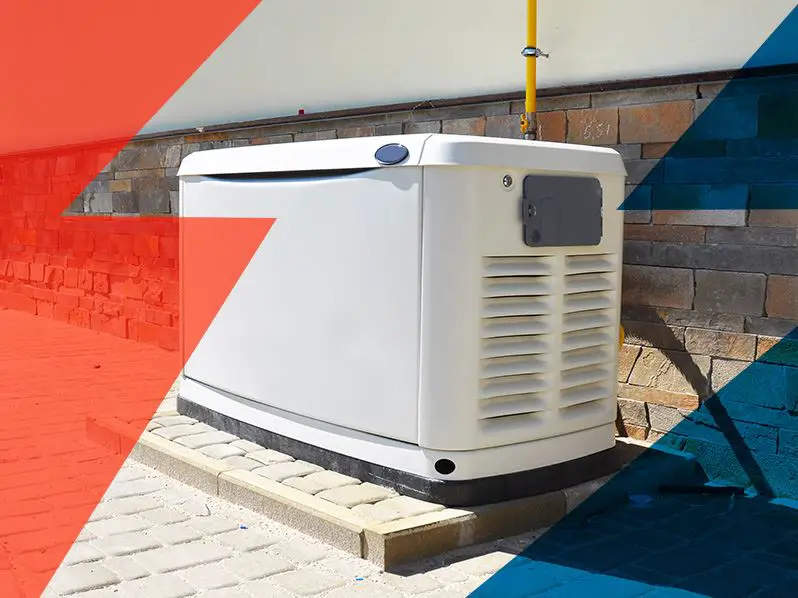Gasoline-powered portable generators can run continuously for about six to 16 hours at a time, while well-managed propane portable generators can run for about 150 to 200 hours at a time (about up to eight days). Portable generators are a convenient backup power solution, but it’s important to consider the fuel type and manage usage to avoid running out of power during emergencies or extended power outages.
We will explore the factors that affect generator run time and provide a comprehensive guide on how long portable generators can run continuously.
Factors Affecting Generator Run Time:
Gasoline-powered portable generators can run continuously for about six to 16 hours at a time. Well-managed propane portable generators can run for about 150 to 200 hours at a time, which equates to approximately eight days. The duration of continuous operation will depend on factors such as the generator’s fuel efficiency, the size of the fuel tank, and the electrical load being powered.
It’s important to note that running a generator continuously for extended periods without proper maintenance and rest can lead to overheating and potential damage. Regularly monitoring fuel levels, conducting routine maintenance, and giving the generator breaks between uses can help optimize its performance and lifespan.
Understanding the specific run-time capabilities of different generator types and their fuel sources is crucial for ensuring a reliable and uninterrupted power supply.
Gasoline-Powered Portable Generators
Gasoline-powered portable generators can typically run continuously for about six to 16 hours at a time. This is the average run time for these types of generators. However, it’s important to note that the actual run time can vary depending on factors such as the generator’s fuel capacity, the load it is powering, and how efficiently it is being used.
To manage the run time of a portable generator, there are a few tips you can follow. First, make sure to calculate the power needs of your appliances and devices to avoid overloading the generator. Additionally, consider using energy-efficient appliances and turning off unnecessary devices to conserve power.
Regular maintenance, such as oil changes and filter replacements, can also help optimize the generator’s performance and extend its run time. Overall, proper management and maintenance are key to getting the most out of your gasoline-powered portable generator.
Propane Portable Generators
Gasoline-powered portable generators can run continuously for about six to 16 hours at a time. However, propane portable generators have a distinct advantage when it comes to extended run time. Well-managed propane generators can run for about 150 to 200 hours at a time, which is equivalent to approximately eight days of continuous operation.
This makes propane generators a reliable option for situations where a prolonged power source is needed. Additionally, using propane as a fuel source has its own considerations. Propane is readily available and has a longer shelf life compared to gasoline.
It also burns cleaner and produces fewer emissions, making it a more environmentally friendly choice. However, it is important to ensure proper ventilation when using propane generators to prevent the buildup of dangerous fumes. Overall, propane portable generators offer extended run time and other advantages, making them a practical choice for continuous power needs.
Diesel Generators
Portable generators can run continuously for different durations depending on the type of fuel used. Gasoline-powered generators typically run for about six to 16 hours at a time. On the other hand, propane generators are capable of running for approximately 150 to 200 hours continuously, which translates to around eight days.
It’s important to note that these run times are based on well-managed usage and may vary depending on factors like the generator’s power output and load capacity. Consider your specific needs and the availability of fuel when determining how long a portable generator can run continuously.
Powering Your House With A Portable Generator
Gasoline-powered portable generators can run for about six to 16 hours at a time. Propane portable generators, if managed properly, can run for about 150 to 200 hours (approximately up to eight days). When it comes to powering your entire house with a portable generator, you need to follow specific steps to connect the generator to the house distribution system.
This includes using commercial transfer panels, plugging the generator into the house, and identifying emergency switches. By following these guidelines, you can ensure a continuous power supply to your home during emergencies or power outages.
Managing Generator Power For The House
Gasoline-powered portable generators can run continuously for about six to 16 hours at a time. Well-managed propane portable generators can run for about 150 to 200 hours at a time (about up to eight days). When it comes to managing generator power for the house, it is important to identify emergency switches and transfer panels.
These switches and panels allow for seamless switching between the generator and the main power source during an outage. Additionally, cost considerations for necessary parts such as commercial transfer panels should be taken into account. By understanding how long a portable generator can run continuously and properly managing the power for the house, homeowners can ensure a reliable backup power source during emergencies.
Choosing The Right Portable Generator
Gasoline-powered portable generators can run continuously for about six to 16 hours at a time. Propane portable generators, when properly managed, can run for about 150 to 200 hours at a time, which is equivalent to up to eight days.
When choosing a portable generator, it’s important to consider the fuel source and its impact on the generator’s run time. Gasoline generators are convenient but require frequent refueling, while propane generators offer longer run times but require a steady supply of propane.
Additionally, factors such as the generator’s wattage, load capacity, and energy efficiency should be considered when selecting the right portable generator for your needs. By carefully assessing these features, you can ensure that your portable generator will run continuously for the desired duration.

Credit: www.petro.com
Frequently Asked Questions:
Can A Portable Generator Run 24 Hours A Day?
Gasoline-powered portable generators can run for up to 6-16 hours continuously, while well-managed propane generators can run for about 150-200 hours (up to 8 days).
How Long Can You Run A Generator Without Turning It Off?
Gasoline-powered portable generators can run continuously for about 6 to 16 hours, while well-managed propane generators can run for about 150 to 200 hours.
How Many Hours Can A Generator Run In A Day?
Gasoline-powered portable generators can run continuously for about 6 to 16 hours, while propane generators can run for about 150 to 200 hours.
Conclusion
Gasoline-powered portable generators can run continuously for about six to 16 hours at a time, while well-managed propane portable generators can run for about 150 to 200 hours at a time, which is equivalent to up to eight days. It’s important to note that the specific duration of continuous operation depends on various factors such as the capacity of the generator, the load it is powering, and the type of fuel being used.
It is recommended to refer to the manufacturer’s guidelines and perform regular maintenance to ensure optimal performance and longevity of the portable generator. By understanding the runtime capabilities of your generator, you can better plan for power outages or outdoor activities where a portable generator is needed.
With proper care and attention, a portable generator can provide the necessary power for your needs when and where you need it.



















